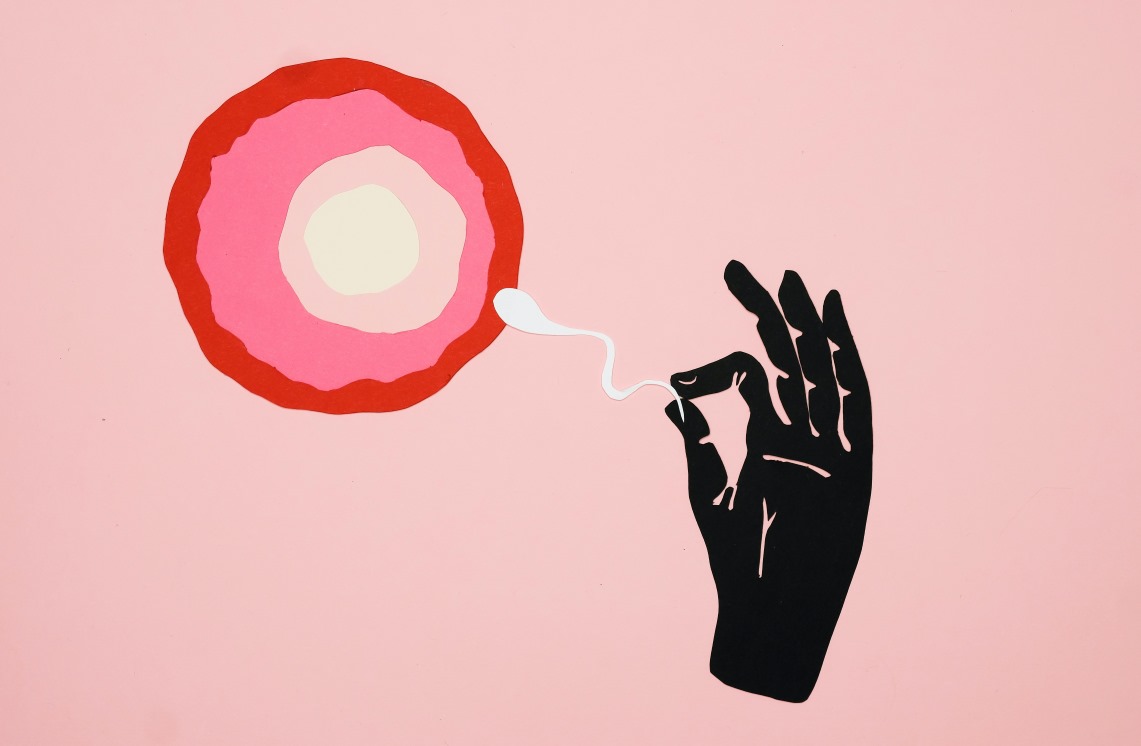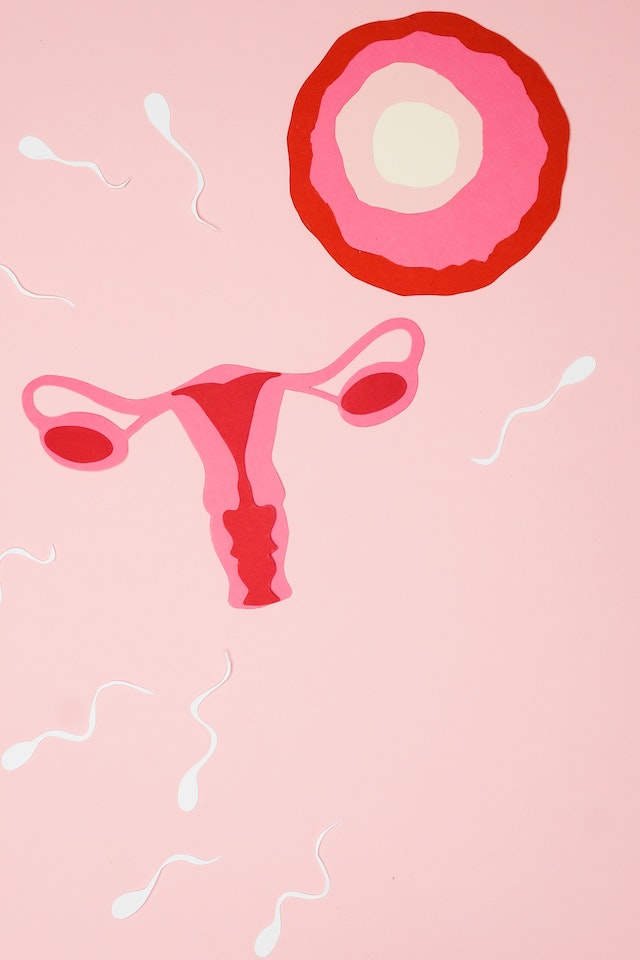The two main types of infertility in females regarding the causes can be primary or secondary.
Primary infertility is one of the common types of infertility in females when couples who are having sexual activity for at least a year frequently and without using birth control methods, have never achieved a pregnancy.
Secondary infertility is one of the types of infertility in females when pregnancy has been achieved by couples at least once, but they are unable to achieve pregnancy anymore after that.
Around one-third of the cases of infertility are due to female factors, while another one-third of the cases are due to both female and male factors.
The causes of the remaining instances are either unknown or a mix of male and female influencing factors.

What is infertility?
Infertility is defined as trying to have children with regular, unprotected sexual relationships for at least a year without a successful outcome.
Symptoms of infertility
The different types of infertility in females symptomize briefly as follows:
-The inability to achieve pregnancy is the main symptom of infertility.
-A too-long menstrual cycle that is 35 days or longer.
-A too-short menstrual cycle that is less than 21 days.
-An irregular menstrual cycle or absence of menstruation can mean that you're not ovulating.

Causes of types of infertility in females
Mainly several conditions in the female reproductive system may result in one or more of the different types of infertility in females, they are described below individually.
Ovulation disorders:
Among the most common causes of infertility in females is ovulating infrequently or not ovulating at all.
The irregular production of reproductive hormones by the hypothalamus or pituitary gland can cause this disorder or problems in the ovary itself can also cause ovulation disorders.
Different forms of ovulation disorders:
Polycystic ovary syndrome (PCOS)
A hormone imbalance that is caused by PCOS, may affect ovulation.
PCOS is considered the most common cause of female infertility and is associated with insulin resistance, obesity, excessive or abnormal hair growth on the face or body, and acne.
Hypothalamic and pituitary dysfunction
The hormones follicle-stimulating hormone (FSH) and luteinizing hormone (LH), which are produced by the pituitary gland are responsible for stimulating ovulation each month.
Production of (FSH) and (LH) hormones can disrupt by many factors like excess physical, emotional, or mental stress, a very high or very low body weight, or a recent substantial weight gain or loss that affect ovulation.
The most common symptoms are irregular or missing menstruation.
Functional hypothalamic amenorrhea is a condition due to slows or stops releasing of gonadotropin-releasing hormone (GnRH) by the hypothalamus gland, causing menstruation to stop.
Commonly caused by excessive exercise, stress, and undereating.
Primary ovarian insufficiency
Also known as premature ovarian failure, this syndrome is usually caused by an autoimmune response or by premature loss of eggs from the ovaries, possibly due to genetic reasons or chemotherapy.
In younger women, estrogen production decreases since the ovaries no longer produce eggs.
Too much prolactin
Prolactin is produced in excess from the pituitary gland (hyperprolactinemia), which limits the production of estrogen and may result in infertility.
Tubal infertility:
Damage to fallopian tubes
Among the different types of infertility in females, there is a different one that is related to the fallopian tube.
Tubal infertility is caused by damaged or blocked fallopian tubes, that prevent sperm from reaching the egg or preventing the fertilized egg's journey toward the uterus.
Fallopian tube damage or blockage causes include:
-Untreated sexually transmitted diseases (STDs) can lead to pelvic inflammatory disease, which is an infection of the uterus and fallopian tubes.
-Complications of unsafe abortion.
-Postpartum sepsis.
-Previous abdominal or pelvic surgeries, which include those performed for ectopic pregnancies, in which a fertilized egg implants and develops outside of the uterus, mostly in a fallopian tube.
Uterine or cervical infertility:
Several uterine or cervical conditions may prevent the egg from implanting into the uterus or increasing the probability of miscarriage:
Benign polyps or tumors (fibroids or myomas)
The uterus can develop benign polyps or tumors (fibroids or myomas).
Some may decrease fertility by preventing implantation or obstructing the fallopian tubes.
Endometriosis
When tissue that usually develops in the uterus implants and expands in other areas, endometriosis occurs.
The removal by surgery of this excess growth of tissue may result in scarring, which may obstruct fallopian tubes and prevent the union of an egg and sperm. Additionally, endometriosis might prevent the fertilized egg from implanting successfully.
The condition might also appear to cause damage to sperm or eggs, which would have a less noticeable impact on fertility.
Uterine abnormality
A congenital defect with the uterus' shape that developed in an atypical way before birth is uterine abnormality.
Early or late miscarriage or infertility may result from uterine abnormalities.
Additionally, the fallopian tubes, upper vagina, and cervix may all be affected by these anomalies.
Cervical stenosis
A cervix damage or inherited abnormality may cause narrowing of the cervix, a cervical stenosis.
There are occasions when the cervix is unable to create the ideal kind of mucus to allow the sperm to travel through the cervix to reach the uterus.
Risk factors for types of infertility in females
You must take into consideration several significant lifestyle variables that may increase the risk of infertility to figure out the underlying cause of one or more types of infertility in females.
Age
After the age of 30, women's follicle loss rates increase, producing fewer eggs of poor quality, making conception and pregnancy more challenging.
It could also make a miscarriage a greater possibility.
Smoking and tobacco consumption
Your cervix and fallopian tubes may suffer permanent damage if you smoke or use other tobacco products.
It also makes ectopic pregnancy and miscarriage increasingly probable.
Obesity or Malnutrition
You may also be more likely to experience infertility if you are very overweight or excessively underweight.
Regular and healthy ovulation and high pregnancy chances depend on maintaining a healthy body mass index(BMI).
Sexually transmitted diseases (STDs)
The fallopian tubes can severely be damaged by sexually transmitted diseases (STDs) or infections such as gonorrhea or chlamydia.
Alcohol consumption
The chances of infertility in women after a certain age can be increased by excessive consumption of alcohol.
Drugs that may cause female infertility
Some medications and treatments could potentially lead to one or more types of infertility in females.
If you are currently taking any of the following medications, it is best to discuss their side effects with a professional and get his advice.
-Psychiatric medications such as antidepressants or antipsychotics.
-Steroids such as corticosteroids or anabolic that are used to treat lupus or asthma.
-Anti-epileptic drugs such as Valproate and Phenytoin.
-Thyroid drugs may affect prolactin levels.
-Progesterone or estrogen skin products.
-Chemotherapy, especially with toxic alkylating agents.
When to seek help?
To figure out if you have any cause that can lead to types of infertility in females.
It is preferable to seek medical help and see a doctor if you are trying to get pregnant and didn't succeed in reaching your target. Your age will determine when to seek medical help:
Up to age 35
Most medical professionals advise trying to conceive for at least a year before testing or treatment.
Age between 35 and 40
After six months of trying they may seek a medical professional's advice.
Age older than 40
The medical professional might suggest immediate evaluation and treatment.
If your spouse has a history of known reproductive issues, or if you have a history of irregular or painful periods, pelvic inflammatory disease, multiple miscarriages, cancer treatment, or endometriosis, the doctor might want to initiate testing or treatment straight away.
Conclusion
Types of infertility in females can be due to primary or secondary causes.
And the main common cases are ovulation disorders, damage to fallopian tubes, and uterine or cervical causes.
Infertility in females can be due to additional and external factors like age, smoking, alcohol consumption, obesity, malnutrition, STDs, or some drugs.
Read more about:
High levels of testosterone in women
Top services of St Luke's Women's Center | Women's health



You must be logged in to post a comment.